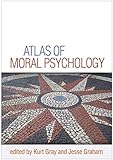Atlas of Moral Psychology
Material type: TextPublication details: New York Guilford Press 2018Description: 586pISBN:
TextPublication details: New York Guilford Press 2018Description: 586pISBN: - 9781462532568
- O65.5 G791
| Item type | Current library | Call number | Status | Date due | Barcode | |
|---|---|---|---|---|---|---|
 Books
Books
|
DVK Library Stack -> Third Floor -> O | O65.5 G791 (Browse shelf(Opens below)) | Available | 11066589 |
includes index and biblioraphy
Part I. Morality and thinking 1. Can we understand moral thinking without understanding thinking ....3 2. Reasoning at the root of morality ....9 3. Moral judgment: reflective,interactive, spontaneous, challenging and always evolving .....20 4. on the possibility of intuitive and deliberative processes working in parallel in moral judgment .....31 5. The wrong and the bad .....40 Part II. Morality and feeling 6. Empathy is a moral force ....49 7. Moral values and motivations : how special are they ....59 8. A component process of disgust, anger and moral jufgment ....70 9. A functional conflict theory of moral emotions ....81 10. Getting emotions right in moral psychology .....88 Part III. Morality, social cognition, and identity 11. What do we wvaluate when we wvalute moral character...99 12. Moral cognition and its basis in social cognition and social regulation ....108 13. Morality is personal .....121 14. A social cognitive model of moral identity ....133 15. Identity is essentially moral .....141 16. The core of morality is the moral self .....149 17. Thinking morally about animals ....165 Part IV. Morality and intergroup conflict 18. Morality is for choosing sides ....177 19. Morality for us versus them ....186 20. Pleasure in response to outgroup pain as a motivator of intergroup aggression ....193 21. How can universal stereotypes be immoral ....201 Part V. Morality and culture 22. Moral foundations theory: on the advantages of moral pluralism over moral monism ....211 23. The moral of moral motives: A map of the moral domain .....223 24. Relationship regulation theory .....231 25. A stairway to heaven: A terror management theoty perspective on morality ....241 26. Moral heroes are puppets .....252 27. Morality: A historical invention ....259 28. The history of moral norms ....266 Part VI. Morality and the body 29. The moralization of the body: protecting and expending the boundaries of the self ....279 30. Grounded morality ....292 Part VII. Morality and beliefs 31. Moral vitalism ....303 32. The objectivity of moral beliefs ....310 33. Folk theories in the moral domain ....320 34. Free will and moral psychology ....332 35. The geographies of religious and nonreligious morality .....338 36. The egocentic teleological bias:How self-serving morality shapes perceptions of intelligent design ....352 Part VIII. Dynamic moral judgment 37. Moralization: how acts become wrong ....363 38. Moral coherence processes and denial of moral complexity ...371 39. What is blame and why do we love it ....382 Part IX. Developmental and evolutionary roots of morality 40. Do animals have a sense of fairness ....393 41. The infantile roots of sociomoral evaluations ....402 42. Atlas hugged: The foundations of human altruism ....413 43. The developmental origins of infants distributive fairness concerns ....420 44. Vulnerability-based morality ....430 45. The attachment approach to moral judgment ....440 46. Ethogenesis: evolution, early experience and moral becoming ....451 Part X. Moral behavior 47.On the distinction between unethical and selfish behavior ....465 48. In search of moral equilibrium: person, situation, and their interplay in behavioral ethics ....475 49.Unconflicted virtue ....485 50. Moral clarity .....493 Part XI. Studying morality 51. Why developmental neuroscience is critical for the study of morality ....505 52. Implicit moral cognition ....516 53. Into the wild: Big data analytics in moral psychology ....525 54. Applied moral psychology ....537 Part XII. Clarifying morality 55. The moral domain ....547 56. There is no important distinction between moral and nonmaral cognition ....556 57. Asking the right questions in moral psychology ....565
There are no comments on this title.
